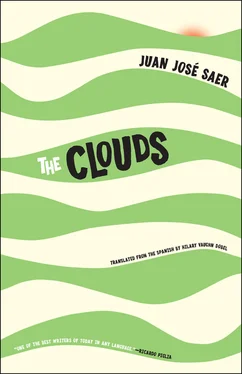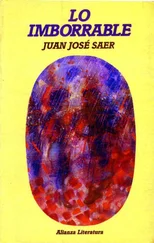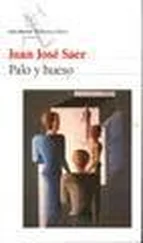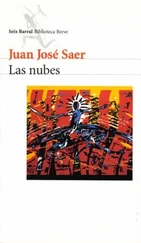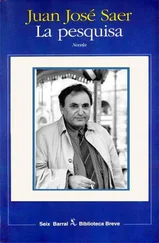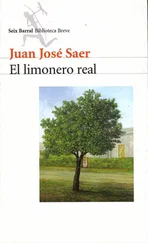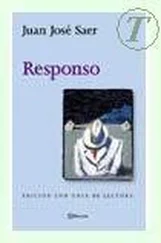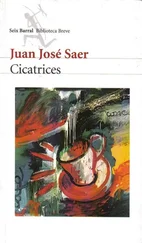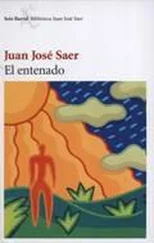We left, then, at dawn on the first of August, 1804. If anything, of the many incidents, difficulties, anomalies — or however you’d like to call them — that made up our travels — if anything, as I said, could sum up what was to come, perhaps the absurd fact that inaugurated our journey would be enough: Namely, while our destination lay to the south, our caravan started off north, and we had to travel that way for a few days before veering west to seek our true course. The party from Asunción had been forced to backtrack across the Salado River a bit farther northward, as it splits into two branches near the mouth, and both were equally flooded, turning the entire region into an expanse of water two or three leagues wide, rendering it impossible to make out the riverbed. When he came across the flood, Osuna had explored the field upstream to find a relatively dry patch, narrow and sandy enough for canoes to pass through. For that reason we had to first head north past the fork in the river, farther up the floodplain, to the winding places that stalled the current, and, after a less-than-easy crossing, bear west for a stretch, only then to return south, swinging parallel to the water several leagues inland. There, according to Osuna and others who knew the region well (though not quite as well as the usual post-road), without too much difficulty we would cross the endless line of streams, brooks, and rivers that cut across the plain from west to east and flow into the currents of the Paraná.
Although horses, not oxen, drew the covered wagons, we inched forward: First of all, in the wake of those steady rains, the state of the roads — if the winding tracks we followed in open country could be called roads — hindered our progress; but at the outset, our convoy was to have consisted of a fleet little group of carts to advance along the line of outposts that hugged the river, a few leagues from one to the next, until at last we reached the white building at Las Tres Acacias ten or twelve days later. However, I must admit that our convoy instead became an unwieldy caravan, lagging and long, slowed by perpetual indecision like a clumsy, hesitant snake, whose belly and tail each fancy themselves as much in charge as the head. I do not mean to say that any one member of the convoy, sound of body and mind (if, under the circumstances of our crossing, such a phrase still held meaning), tried to replace the deliberative triumvirate formed by Sergeant Lucero, Osuna, and myself, to which we sometimes added an Indian who accompanied the troops. Rather, I mean that in such a large group of people, thirty-six altogether, everyone’s desires could not very well go hand in hand at every moment of a journey that announced itself from the start as lengthy and difficult.
Apart from the six wagons, one for each patient plus my own, driven by cart-men from the transport company that would return them from Buenos Aires to Asunción with different cargo, there were two more carts designated for our needs en route. One was a sort of grocer, general store, and galley, whose proprietor, a Basque man who had spent years trekking across America, had actually made a living from his mobile warehouse. As he told me one night, he would accompany troops of soldiers, merchant caravans, or simple travelers to Brazil, Paraguay, or Santiago in Chile, from the other side of the mountains. He had all manner of wares in his cart, which had a raised side-panel supported by an iron rod that hooked around to the opening’s lower edge, which could tilt over the outside almost like wings, leaving real shelving and a narrow counter in view, over which he sold yerba mate , sugar, sponge cake, brandy, wine, tobacco, thread, buttons, and much more, or if those wouldn’t do, on the counter were an assortment of drinks and bits of cheese or sliced meats. In one corner of the wagon he had his bunk, and a little mirror hung on the wall where he would take pains to shave every morning. Many in the region, and likely in the south of the continent, knew of him, and according to Osuna, he’d grown rich from usury. In the other cart traveled three women who first had me believe that they were the wives of three soldiers who always brought them along on deployments. Once the trip was underway, though, I realized they were prostitutes, and that the three soldiers who had been passing as their husbands were common pimps. Sergeant Lucero explained that such women following military companies on the plain were a common sight in the region, and that sometimes they might really be wives, or even both at once. Resigned to how easily I’d been duped, I thought how what perplexed me would have charmed Dr. Weiss, as that wife-harlot combination the sergeant spoke of was, in a way, the incarnation of his ideal woman. One of the three was French, and blonde to boot, and she stood out from the other two who had dark skin, high cheekbones, straight black hair, with aquiline features that made them look so much like serving girls or, if you prefer, like Egyptian queens and goddesses. Despite her fair hair and skin, it did not initially occur to me that such a woman might come from France, but she overheard me correcting Troncoso’s abysmal French one day and approached me with the unmistakable accent of the Parisian working-class. This was a curious experience for me, as the words she uttered felt out of tune with the countryside, even as they gave me the chance to practice the language of Rousseau and Buffon in the middle of the desert. She came to my cart several times to relay the wild adventures that had led to her current situation, but after two or three conversations the versions began to differ, so I doubted their truthfulness. Our bond was broken altogether when one day, on the fourth or fifth visit, she hinted that she was actually working, and that I ought to pay for the time we had spent in my cart as if such visits were professional ones. That shameful moment could have incensed me, but it became clear that, though outward circumstances do indeed shape our lives, there is always something within us that makes us lose sight of those circumstances and colors them with our perceptions — and our perceptions, though we never realize it, are tarnished by pure delirium. (Speaking of those three women, I must say that they were trounced on their own ground by Sister Teresita; she visited them often at first, but they came to spurn her for what we might term unfair competition . My French confidante came to tell me one day that she’d stumbled onto the little nun with two soldiers, lying among the grasses some distance from camp. She was aghast, shaking her head and repeating at every turn: Tous les deux, monsieur, tous les deux! Ce n’est pas malheureux? When I told the story one night back at the Casa de Salud, Dr. Weiss laughed, remarking: One of the most surprising aspects of theology is the prodigious work theologians do to elaborate a system that has at its foundation an unutterable experience. Saint Thomas suspended the composition of the Summa Theologica , after all that sweat, the day he finally had a genuine mystical experience. Such an important fact as the certainty of the existence of the divine can dispense with any commentary. Theology, which is essentially political, troubles no one. Mysticism, on the other hand, is empirical theology, and I’ve always thought its practical application capable of sowing panic in the Church, in the Court, and in the brothel. )
Our escort was made up of sixteen soldiers, with Sergeant Lucero to command them, and the Indian, Sirirí, a docile Mocoví whose two primary traits, I would say, were prudishness and hatred for Chief Josesito; the mere mention of him in Sirirí’s presence darkened his face. The more unreasonable demands of the Catholic Church, which at that time were not taken seriously even in Rome, seemed to have found in Sirirí the proper soil to take root and flourish to the point of caricature. He did not drink, smoke, curse, nor swear in vain, and it suited him to cross himself on any pretext and kiss a little gold medallion that hung around his neck. Sergeant Lucero, who valued him because he was in fact a trusty guide as well as an interpreter, said — when Sirirí was not around, of course — that as a boy he had swallowed a catechism and had yet to finish digesting it. When he spoke of Chief Josesito, Sirirí’s hateful expression became so disturbing that one began to feel kind toward the musical murderer, who, by contrast, at least displayed a certain humanity when he was drunk or set to playing the violin. Sirirí’s principles, strict as they were, suffered many grueling tests over the trip, during which there was not only prostitution, alcohol, and violence to weaken his moral foundations, but also the addition of madness to dash the walls of the doorless, windowless building in which religion had caged his wild and fateful soul. Osuna, who was like two different people depending on whether he was drunk or sober, respected him by day for of his knowledge of the desert and loathed him by night.
Читать дальше
